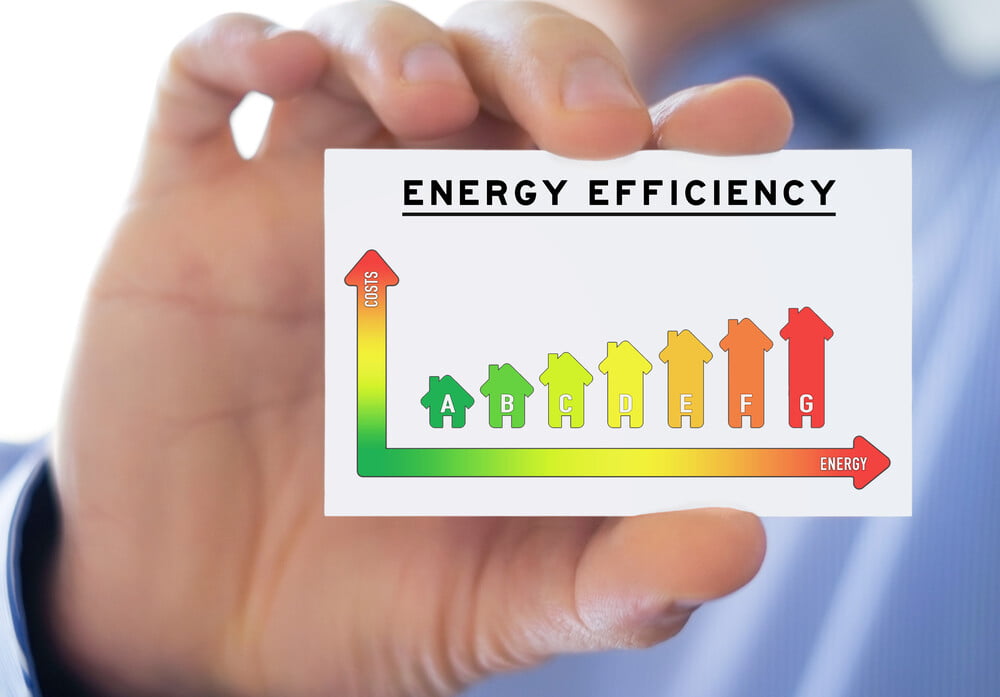Energy efficiency
In the increasingly eco-conscious world we live in, there is a growing interest in energy-efficient custom homes, not only for the positive environmental impact but also for the substantial cost savings they can bring. We at ConstructionX understand this growing demand and are committed to delivering high-quality, energy-efficient homes that embody the ethos of sustainable living.
Understanding Energy Efficiency
Firstly, let’s break down what energy efficiency truly means. Simply put, an energy-efficient home is one that reduces unnecessary energy use, greenhouse gas emissions, and demands for nonrenewable resources. They achieve this through superior building envelope design, utilizing high-performance HVAC systems, energy-efficient appliances, and incorporating renewable energy sources.
The Building Envelope
The building envelope — which includes the home’s roof, walls, windows, doors, and foundation — plays a pivotal role in determining a home’s energy efficiency. It serves as a barrier between the indoor and outdoor environment, and its effectiveness in insulating the house from external temperature fluctuations can significantly reduce the energy required for heating and cooling.
ConstructionX uses innovative building methods and materials, such as Structural Insulated Panels (SIPs) and advanced framing techniques, to create a tight building envelope that minimizes air leakage and optimizes thermal comfort.
Energy-Efficient Systems and Appliances
Energy-efficient systems and appliances are essential components of an energy-efficient home. High-performance HVAC systems, for instance, can decrease energy use by 10-20%, while energy-efficient appliances, such as ENERGY STAR-rated refrigerators, washing machines, and dryers, can reduce energy use by up to 50%.
Renewable Energy Sources
Incorporating renewable energy sources, such as solar panels or geothermal heating and cooling systems, can take your home’s energy efficiency to the next level. Not only do these systems reduce your reliance on grid electricity, but they also lower your utility bills, provide a degree of energy independence, and contribute to a sustainable future.
The Costs, Savings, and Benefits of Energy-Efficient Homes
It’s important to note that while energy-efficient homes can be more costly upfront due to the higher price of energy-efficient materials and appliances, the long-term savings are substantial. Let’s explore the financial implications of an energy-efficient home in detail.
Upfront Costs and Long-term Savings
When designing an energy-efficient home, you will incur some additional costs upfront. These might include the installation of high-quality insulation, double or triple-paned windows, a high-efficiency HVAC system, and potentially renewable energy sources like solar panels.
However, it’s crucial to consider these costs as an investment rather than an expense. The energy savings over the lifetime of these systems will significantly offset and can even surpass their initial cost. To give an idea of potential savings, an energy-efficient home can save up to 30% on energy bills compared to a traditional home, according to the U.S. Department of Energy.
Resale Value
An often overlooked benefit of energy-efficient homes is their higher resale value. As energy efficiency becomes more prevalent, homebuyers are increasingly willing to pay a premium for homes with energy-saving features. The National Association of Home Builders found that 90% of homebuyers would choose a home with energy-efficient features and permanently lower utility bills over a similar home without these features, even if that means paying a bit more upfront.
Top Brands and Models for Energy Efficiency
When it comes to energy efficiency, certain brands and models stand out for their superior performance. Here are a few worth mentioning:
Appliances: ENERGY STAR certified appliances such as refrigerators, dishwashers, and washing machines use 10 to 50% less energy and water than standard models. Brands like Whirlpool, Samsung, and LG have extensive lines of energy-efficient appliances.
HVAC Systems: Companies like Lennox, Trane, and Carrier offer high-efficiency furnaces and air conditioning units that can significantly reduce energy use. Heat pumps, particularly those from Daikin and Mitsubishi Electric, are another energy-efficient option for heating and cooling.
Windows: Brands like Andersen, Pella, and Marvin offer double and triple-paned windows with excellent energy-saving ratings.
Insulation: Johns Manville and Owens Corning lead the pack in insulation products, which are key to minimizing heat transfer in your home.
Renewable Energy Systems: Tesla, SunPower, and LG are well-known brands offering solar panel systems. These renewable energy sources can drastically reduce your home’s reliance on grid electricity, further enhancing energy efficiency.
The Step-by-Step Process of Building an Energy-Efficient Home
The process of constructing an energy-efficient home is a meticulous one, requiring a detail-oriented approach from the outset. A custom home builder like ConstructionX is essential to navigate the complexities of this process.
Step 1: Site Evaluation and Home Design – The process begins with evaluating the site’s environmental factors and the home’s design. Factors such as the home’s orientation, window placement, and landscaping can significantly affect energy efficiency.
Step 2: Material Selection – ConstructionX helps homeowners choose materials that enhance energy efficiency. These include high-efficiency windows, high R-value insulation, and energy-efficient appliances.
Step 3: Building – During the building process, meticulous attention to detail ensures that the home is airtight, properly insulated, and that all systems are correctly installed.
Step 4: Systems Installation – We install high-efficiency heating, cooling, and ventilation systems, along with renewable energy systems like solar panels if desired.
Step 5: Testing and Certification – After construction, the home is tested to verify its energy performance and certified as energy-efficient.
Costs, Savings, and Benefits
The upfront costs of building an energy-efficient home can be higher due to the cost of energy-saving features. However, the long-term savings are significant. Energy-efficient homes can save homeowners thousands of dollars annually on utility bills. Furthermore, energy-efficient homes often have a higher resale value due to their lower operating costs and high demand.
Comparing Energy Costs: Standard Home vs. Energy-Efficient Home
To give a concrete perspective, let’s compare a typical 2,000 square foot house and a similar size energy-efficient home designed and built by ConstructionX.
The standard home may use conventional methods and materials, resulting in higher energy consumption. Let’s say, the utility costs (heating, cooling, water heating, and electricity) for such a home could average around $300 per month.
On the other hand, an energy-efficient home of the same size, with high-performance insulation, energy-efficient appliances, and a renewable energy source, might have utility costs as low as $100 per month.
This significant difference adds up over time. If we estimate a savings of $200 per month, this means $2,400 per year, or $24,000 over ten years. Furthermore, as energy costs continue to rise, these savings will become even more substantial.
The Longevity and Maintenance of Energy-Efficient Homes
Energy-efficient homes aren’t just cheaper to run—they’re also designed to last longer. They are constructed with high-quality materials that enhance the home’s durability. They can withstand the test of time better than traditional homes, thus reducing maintenance costs.
Resale Value
An energy-efficient home can command a higher resale value. With the growing awareness of climate change and increasing energy costs, more buyers are seeking energy-efficient homes. A 2019 study by the U.S. Department of Energy found that energy-efficient homes sell for a premium of up to 9% more than standard homes.
Top Brands and Models in Energy-Efficient Home Systems
When it comes to building an energy-efficient home, there are a multitude of components that play a part. From heating and cooling systems to insulation and water treatment, each piece contributes to the overall efficiency of the home. As a company, ConstructionX has experience working with a variety of top-quality brands in the field:
- Trane: A leader in HVAC systems, Trane offers high-efficiency furnaces, air conditioners, and heat pumps that help maintain a comfortable and energy-efficient home.
- Carrier: Another renowned brand in the HVAC industry, Carrier’s products offer impressive energy-efficiency ratings and innovative features that contribute to a sustainable home.
- Icynene: A top brand in the field of spray foam insulation, Icynene’s products provide superior thermal insulation, soundproofing, and air sealing, helping reduce energy consumption.
- Venmar: A popular brand when it comes to heat recovery ventilators (HRVs), Venmar’s units exchange indoor air pollutants and moisture with fresh outdoor air, maintaining a healthy indoor environment while saving energy.
- Pentair: A trusted name in water treatment systems, Pentair’s solutions can help to significantly reduce water and energy usage in homes.
Final Thoughts: Energy Efficiency and the Future of Construction
As we have walked you through various aspects of energy-efficient homes, it becomes increasingly clear that investing in such a home is not just about saving on utility bills—it is an act of responsible environmental stewardship that impacts us all. In the face of a changing climate, energy efficiency is the future of construction, and ConstructionX is fully committed to this future.
When considering an energy-efficient home, remember to look beyond the initial investment. True, high-efficiency appliances and construction materials can seem more expensive upfront. But the return on investment in terms of savings on energy bills, increased property value, enhanced comfort, and environmental impact is far superior. In fact, according to a 2019 study published in the Journal of Sustainable Real Estate, energy-efficient homes have been found to fetch a premium of 3-7% over conventional homes during resale.
Investing in an energy-efficient home is also an investment in your health. Efficient appliances, advanced insulation, and superior HVAC systems can result in better indoor air quality, reduced allergens, and a comfortable living environment regardless of the season. Brands like Trane, Rheem, and Lennox offer high-efficiency HVAC systems that not only use less energy but also provide superior comfort and air quality.
Moreover, consider the broader environmental benefits. By consuming less energy, these homes contribute less to greenhouse gas emissions. This is a crucial step in our collective responsibility to combat climate change. You are contributing to a more sustainable future by living in a home that uses resources more efficiently.
In conclusion, the decision to build or upgrade to an energy-efficient home is a multifaceted one. There are many factors to consider, but the advantages are overwhelming. At ConstructionX, we see energy efficiency as more than a trend—it’s the future of housing. We’re dedicated to not only building quality, custom homes, but also to leading the charge towards sustainable, efficient, and healthy living environments.
Remember, an energy-efficient home is not just a house. It’s a long-term investment in your future, your health, your finances, and the planet we all share. The team at ConstructionX is here to guide you on this journey towards energy efficiency, answering your questions and working with you to create the home of your dreams.
Together, let’s build a more sustainable future.
#EnergyEfficientHomes #GreenConstruction #SustainableBuilding #HighPerformanceHomes #EnergySavings #EcoFriendlyLiving #CustomHomeBuilding
Join us on social

Want to Learn More?
Click the button below to return to the articles home page to find dozens of amazing and informative articles.

